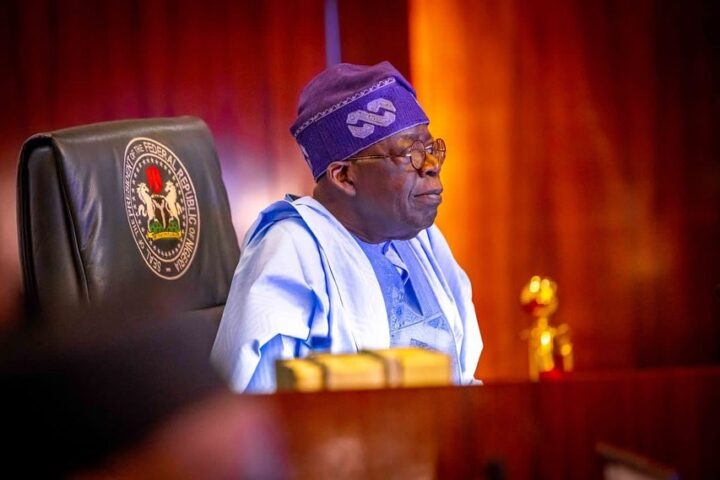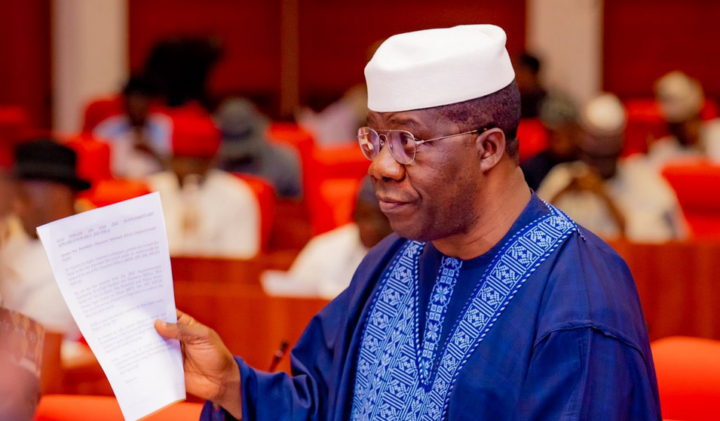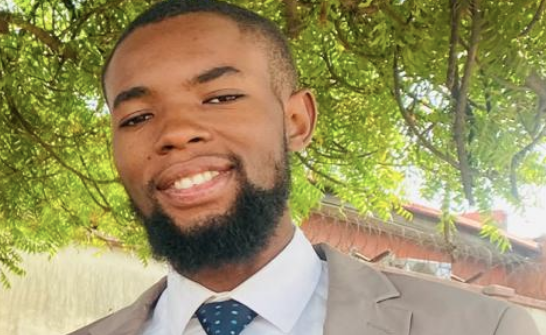BY WALE AJAYI
It’s no longer news that President Bola Tinubu has indeed taken a few bold decisions within a few weeks of his administration in setting the tone for revolutionary change in his approach to governance. The meeting with traditional rulers to seek their support for government policies. The way the national assembly’s principal officers’ election was managed by personally meeting senators-elect and reps-elect regardless of party to seek their collaboration and sell the candidates of his party to balance the Muslim-Muslim position in the executive and ensure inclusiveness between north and south are commendable.
This will help in dousing ethnoreligious tensions that got to a high point post-election and helps unify the country in the long run. The recently announced student loan is cheery news for most people even though some are skeptical because of previous experience. Most of the appointments by the administration so far have been applauded by many as being reflective of national character, inclusive, and round pegs in round holes.
That the administration prioritised the economy and the financial health of the country by making two audacious decisions on petrol subsidy removal and harmonisation of multiple exchange rates in quick succession shows a well-prepared government that meant business. However, this urgently needed paradigm shift and steps wouldn’t come without its negative impacts on the people and enterprises, most especially the poor and vulnerable. Regardless, true leadership shows in tough times with confusion, popular discontent, and misconceptions about visionary policy.
Advertisement
Most of us agree that we need to change the way we do things to really progress as a people but recalibrating Nigeria wouldn’t come easy. There will be temporary hardship and despair. There will be opposing views. A genuine attempt to truly change Nigeria from the current system of top-heavy and bottom-thin without a middle ground to a country and economy that works and benefits all is never going to be easy. It will take sincere and audacious leadership to take on such a task. If we ever want to help a person suffering from matured appendicitis to live a pain-free life, the procedure is to remove it. The process may come with temporary pain but in the end, we will all be happy.
Just like when the telecoms sector was liberalised in early 2000 with the coming GSM and pioneer telcos like Econet (now Airtel) and MTN. Most people would recall how very expensive sim cards and mobile phones were but now sim cards are almost free, and phones are affordable according to budget. It would almost be impossible to realise the full benefits of the Petroleum Industry Act (PIA) 2021 without full implementation with the removal of petrol subsidy. With these efforts, the coast is clear for the much-needed investment in the downstream sector. The benefits to our national economy and our people can only best be imagined from the telcos industry experience. All that the current leadership needs now is constructive criticism, support, and encouragement.
I believe the government has good and well-informed intentions with its policy of reengineering the economy, but more advocacy needs to be done. I would suggest the government should open a situation room (virtual or/and physical) to inform and educate our people on what they are doing and what they want to do in the languages they understand daily. The people must own the process and feel part of this journey otherwise saboteurs may take advantage of the situation to spread lies and manipulate the public. The government, and in fact the president and his handlers, must talk to Nigerians directly through all channels.
Advertisement
Nigerians don’t have problems sacrificing now for better tomorrow even though there are no positive results from past attempts. The least Nigerians expected is for their leaders across levels and stages (federal, state, local, political, business, religious, traditional) to be part of this and lead by example in making significant sacrifices. They argued they have always been sacrificing anyways and queried whether their leaders ever sacrificed with regard to income or other means of livelihood. People believe that instead of their leaders sacrificing in critical times like this, they rather get top-ups on their jumbo pays. Even making a conscious effort at exercising discretion in their public exhibition of wealth it’s a tall order. It’s either they’re throwing lavished parties or buying luxury cars or globe throttling or celebrating graduation celebrations of their children and wards in expensive universities abroad.
Thanks to the internet and social media, poor Nigerians may not live in the same high-end neighbourhood with their leaders, but they share the social media space with them. They see all these luxury lifestyles and it’s registering in their head. How easy would it be to convince the same people who are already in abject poverty to sacrifice more when we put all these luxurious lifestyles in their faces? Indeed, we should wear the same shoes to see how it pinches or fits. We can’t be telling people to sacrifice more with the rising costs of transportation and essential commodities consequent to fuel subsidy removal, forex harmonisation, and naira floating without a corresponding increase in their income and other programmes to cushion the effects almost immediately.
By now, one would expect the government to have announced and rolled out programmes like subsidised public transport, tax reduction for MSMEs, interest rates reduction, harmonisation of multiple taxes on businesses, and low-interest cashflow support loans for MSMEs. These would be in addition to significant salary increases for workers as a quick fix. As it is important to dedicate a significant part of the savings from subsidy removal and forex harmonisation to critical infrastructural development, it is equally important to improve peoples’ standard of living by raising their income through wage increases.
In the short to medium term, a credit system that enables people to afford basics like food, medicine, and items like home appliances and utilities should be established for all based on their earning capacities. An effective mortgage scheme and car loan system is crucial to reducing social pressure and tendencies for graft. Beyond this, the potential of the housing and automobile industry can’t be fully harnessed without these systems in place. Universal health insurance for all and a deliberate policy for fair income distribution and continuous effort at reducing inequalities. All these are a matter of people-oriented policies, and they are doable within the short to medium term.
Advertisement
As all these are playing out, it appears Nigeria is approaching redemption whichever way. The president must always be reminded to live up to his promise to “let the poor masses breathe”.
And three other things…
What did we learn from the COVID-19 pandemic?
COVID-19 happened to us like a “wind blowing the anus of the chicken to the public view” exposing our poor public health emergency preparedness. Unlike Ebola, COVID-19 was a global pandemic of a scale never imagined. Many developed nations with advanced and efficient healthcare systems struggled, emerging and developing economies were not spared, and the underdeveloped countries had to result to faith and the mercy of the bigger nations.
Advertisement
Our experience as members of the last two categories made our experience more complicated. We have the biggest economy in Africa and the black world. Africa’s richest man and some of the top richest people in our race are our compatriots yet we became beggarly when the world resulted to vaccination for the pandemic and other countries were able to immediately formulate and start producing their vaccines. That in 2020-2021 we lack the capabilities to produce vaccines in Nigeria is unbelievable in a country with a pharmaceutical sector worth more than $500 million.
For a country that has established a Federal Vaccine Production Laboratory in Yaba, Lagos, since 1925 with records of rising to the occasion in “producing vaccines for smallpox in the 1930s, anti-rabies in 1948, and yellow fever in 1952” according to Professor Oyewale Tomori, a virologist and former president of the Nigeria Academy of Science. There can be no justifiable reasons for the lack of functional, qualitative, and adequate basic health care and support systems like capabilities to produce vaccines locally. Except that, we were told this very federal vaccine laboratory has been closed since 1991.
Advertisement
I know the lessons learnt from the pandemic might have been documented and archived as usual. However, it interests me to ask whether we have implemented the recommendations and followed through to the letter. Have we started implementing the recommendations to put our public healthcare system in order? Do we have a national pandemic framework now? How about our capacity to manufacture vaccines, has anything been done? Do the 36 states and FCT, and the 774 LGAs now have isolation centres or at least plan for one? Do we need to wait until another public health emergency? I know we will all say God forbid!
Manchester City FC won the Champions League and a treble!
Advertisement
There are three major requirements for success in the top flight of modern club football in this generation. First are quality players, then quality management and staff, and lastly consistency and a bit of luck. Without quality preparation, luck only wouldn’t materialise into success. Unfortunately, only money and more money can make these three happen. This model has been put to good use by quite so many top-flight football clubs in Europe with reasonably successful results.
For Real Madrid FC and Barcelona in Spain, AC and Inter Milan in Italy, Bayern Munich of Germany, Ajax in the Netherlands, Liverpool and Manchester United in England and a few others who have succeeded at this level, it’s either you are at the very top of your game or you are not good enough to be part of the team.
Advertisement
In recent times, Chelsea FC achieved significant success adopting this model after the club’s acquisition by one of the Russian oligarchs, Roman Abramovich. Little wonder the latest and the second continental treble winner, and the 1st domestic treble winner in England, Manchester City FC’s consistency in this model over the recent years has yielded the ultimate result following its acquisition by the Abu Dhabi Group. Hopefully, the recent effort by Arsenal FC will be sustained and even be more aggressive, ambitious, and hungrier for success by recruiting more quality personnel on and off the pitch. Indeed, success is not farfetched, it is what happens when preparation meets luck.
The rising stock of Nigeria’s entertainment industry
From music to theatre to comedy, the entertainment scene in Nigeria is bustling despite the myriads of socioeconomic challenges we are confronted with as a potentially great nation.
On the internet, Nigerian online entertainers are among the most prominent on any platform. Whether on blogs or vlogs, comedy skits, content creators, or even live session organisers, they are everywhere.
Beautiful and rewarding as the entertainment industry has been, my little curiosity is whether these aspects of our socioeconomic activity are properly captured in our GDP estimation and consequently in our national income baselines. Elsewhere, the entertainment industry is properly linked with the tourism sector and they both contribute significantly to the national economic development.
Ajayi, an engineer, management strategist, and development advocate writes from Mushin, Lagos
Views expressed by contributors are strictly personal and not of TheCable.
Add a comment






